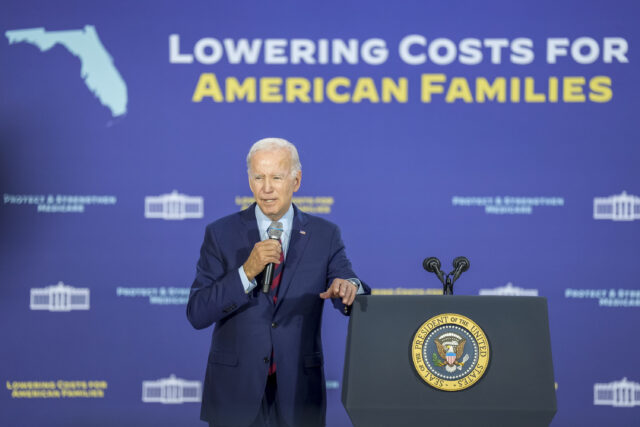Despite the fact that the final tally still has to come in, pundits on both sides of the political divide have conceded that President Biden and the Democratic Party have successfully weathered the political storm to hold off what was an expected Republican surge.
The President who announced on Wednesday that today as a “good day for democracy” still has to contend with the fact that he needs to push key legislation on climate change and Ukraine (on China there is broad consensus) through a deeply divided House of Representatives and Senate where the Republicans will be most likely to do all they can to stifle his agenda.
While the takeaways from the election results still have to be identified experts have identified two key trends that have shaped these midterms: the first is the rise of the independent voter whose number, according to a recent Gallup poll, was more than both Democrats and Republicans in key states, and the second is the rise in cross-voting whereby traditional voters belonging to the Latino, black and Asian communities were willing to shift away from their traditional Democratic bloc and vote Republican.
Such trends concedes James Carafano, analyst and vice president for foreign and security policy at the Heritage Foundation, need to be studied further, but what seems to be clear is that the elections have put pressure on Donald Trump ensuring that the former president may have to rethink his strategy if he wants to stay in the running to be the Republican presidential candidate in 2024.
“Trump’s reputation as a ‘king maker’ was damaged. Several of his most high-profile endorsements did not fare well. That said, some well supported ‘establishment’ candidates like O’Dea in Colorado didn’t do well either. All this suggests there is no presumptive leader of the Republican party, or the conservative movement and that the presidential republican primary could shape up into a real horse race,” says Carafano.
While Republicans will be mulling over new strategies post December 6 which is when election runoff is scheduled to be held in Georgia, the result of which is expected to decide the Senate, the key question remains what happens to foreign policy. Not a lot.
The first reason is that the slim majorities Republicans may get even if they win both Houses ensures they cannot get the two-thirds vote required to over-ride a presidential veto. The second is that while there is much divide on domestic issues there is much agreement between the two parties on what needs to be done in the foreign affairs domain.
While much media attention was focussed on a statement by Kevin McCarthy (tipped to be next Speaker in the House of Representatives should the Republicans win) that there would be no “blank cheque” for Ukraine, there is little that is likely to be done. Post the comment, McCarthy reportedly had to assuage national security committee members from his own party that his remarks were not a sign that he was backtracking on Ukraine but that he would make sure that every dollar sent to the country was justified.
On other issues such as decoupling from China; the withdrawal of troops from Afghanistan; the fact that Biden has retained Trump’s decision to make Jerusalem the capital of Israel; the extension by Biden of an executive order that states Venezuela’s President Nicolas Maduro is a “threat to the United States,” there is broad consensus.
Pundits contend that while Biden may face irritants such as investigations into the way he withdrew troops from Afghanistan, or the origins of the Covid-19 virus, which is designed to stop any moderate policy towards China, little will change in this sphere.
Carafano agrees that the domestic agenda will determine the future of the nation going forward as he argues the politicians from both sides will now focus on outreaches to build trust and confidence among voters over the next two years.
“The future of the USA as a centre-right or centre-left nation is still very much up for grabs and the two sides are likely to sharpen their differences over the next two years which will, no doubt, produce some inter-party squabbling, competition and some gridlock in Washington. On foreign policy and national security, however, I don’t expect big shifts.”
















